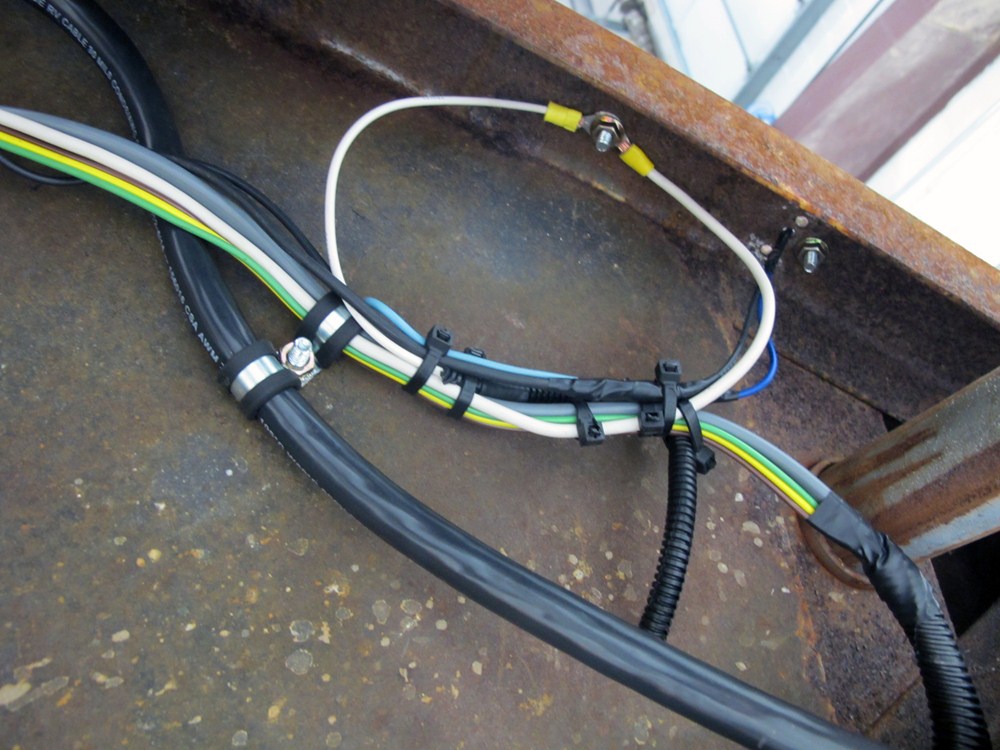

- Trailer breakaway battery not charging how to#
- Trailer breakaway battery not charging generator#
- Trailer breakaway battery not charging tv#
Then, plug your RV into shore power or a generator. This will let you know whether or not power is being sent to the RV battery converter charger. The first thing you'll want to do is use your battery voltage meter to test across the 120V AC terminals.

Just remember that you must conduct the testing steps in sequential order. If you're unsure whether or not your RV converter charger is actually charging your battery, there is a testing procedure that you can perform. When this aspect malfunctions, the converter has a higher likelihood of overheating.
Trailer breakaway battery not charging how to#
How to Tell If Your RV Converter Charger Has Gone Bad Luckily, there are a few telltale signs that your RV converter charger is going bad. It's important to spot these issues as soon as possible, so you can correct the problem prior to your road trip. If an RV battery converter charger starts to go haywire, you won't be able to enjoy the convenience of using and charging your devices. While converters don't break down that often, it can happen. How to Tell if Your RV Converter Charger is Failing Read more to understand the differences and when RV converters and inverters suit your journey.
Trailer breakaway battery not charging generator#
RV enthusiasts and especially those living out of their vehicle for part of the year are recommended to supplement the inverter with a solar-power solution, generator or a smart RV charger converter. Realize that power isn't an endless source with an inverter. This approach might seem counterproductive, but RV inverters prove their worth if you're someone who regularly takes your vehicle off the grid - for instance, off-road and away from campgrounds - and need to run the appliances in your vehicle, or anything that plugs into its sockets.

RV converter chargers are built into vehicles to help you add power when you stop at an RV park or campground.Īn RV inverter does the opposite, translating the 12v power from the RV's battery into 120v AC power. As explained above, this part converts a 120v AC source into a 12v DC form, allowing the RV's battery to hold onto the charge.

RV converters - also called RV chargers - take into account the fact you can't directly charge an RV battery with an AC power source. In learning about power sources for RVs and campers, you'll come across two types of terms: RV converters and RV inverters. They can also transfer unconverted incoming AC power to the breaker panel, helping to power your AC appliances. In addition to charging your RV, products like IOTA battery chargers also distribute converted DC power to your other RV components. This DC power is what's needed to recharge your RV battery and is the only type of power available that uses both shore and generator power. RV battery chargers work by converting household 120-volt (V) alternating current (AC) power into 12V direct current (DC) power when the RV is hooked up to shore power or a generator. Keep reading to learn about the warning signs your converter charger is about to die and how to test it when you think it may be failing. Nobody wants to be driving cross-country when their RV suddenly loses power - trust us, it's the opposite of a good time.
Trailer breakaway battery not charging tv#
An RV converter charger means you can cook on a stove, watch TV and even play video games, all from the comfort of your own camper.īut, RV battery converter chargers can occasionally fail, and when they do, you need to be prepared. RV battery chargers make life in a camper a little more convenient and enjoyable.


 0 kommentar(er)
0 kommentar(er)
